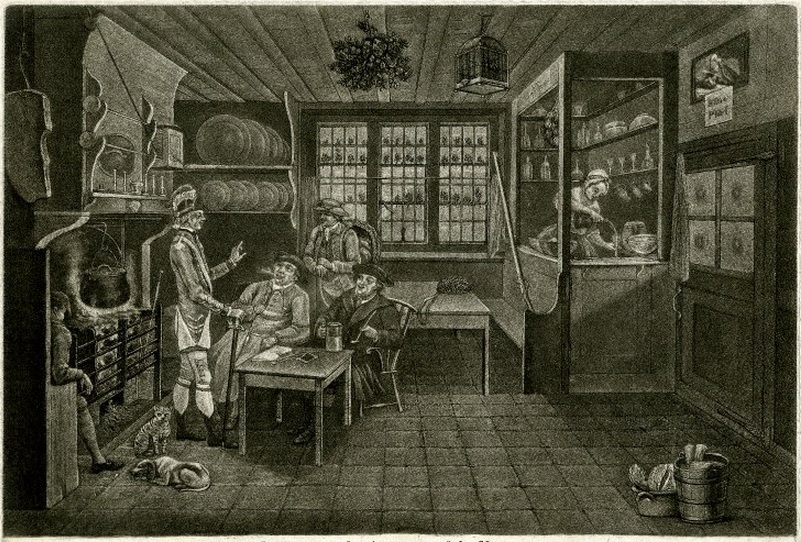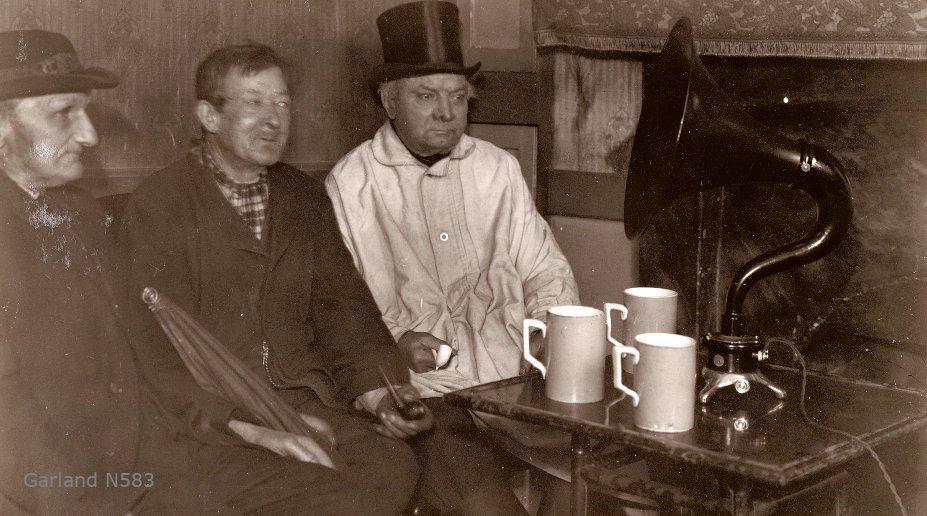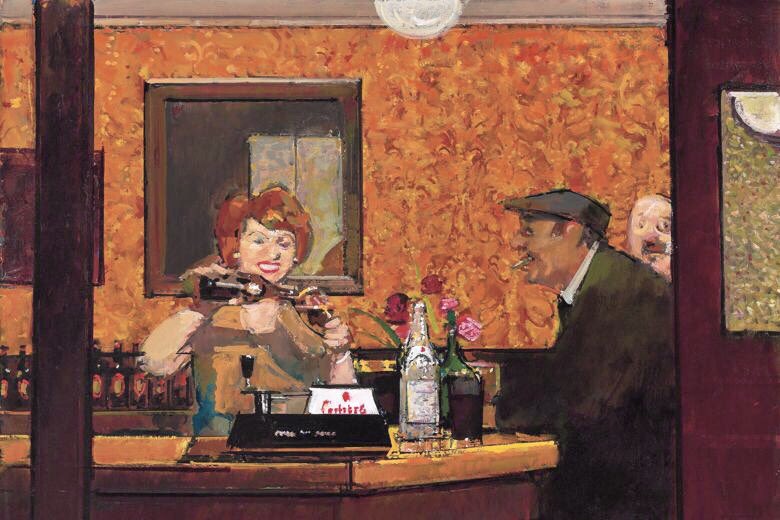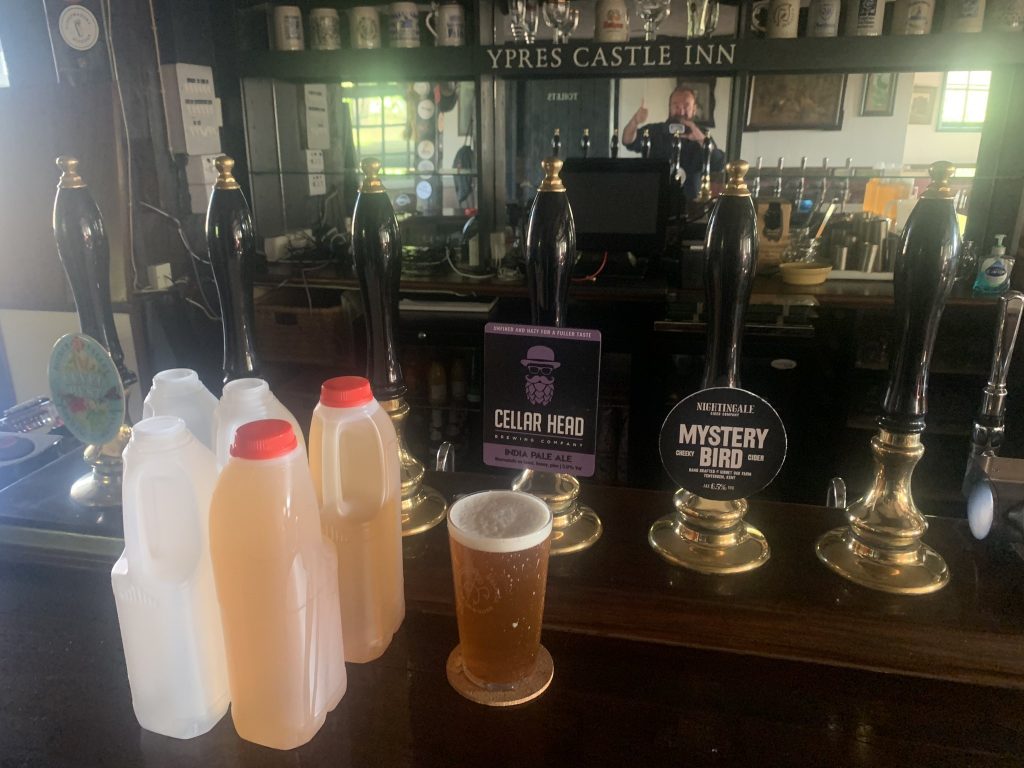This is the week! Santa and everything. So exciting. Last minute shopping opportunities abound even while heads nestle all snug in their beds bothered by visions of some sort. We are as happy for anything around these parts over the vaccination drive through outdoor wintery clinics, as seen above, which are boosting 5,000 people or about 4% of the city’s population per day. After a very scary spike that led the nation just a week or so ago, this is very good news for the holidays. The goose or turkey or whatever is sorta taking second place this year.
It is Tibb’s Eve today, a Newfoundland early start that may go back to 1700s and into the rural outports. What’s that about, you say?
Tibb’s Eve was a “non-time”; if something was said to happen on Tibb’s Eve, it was unlikely it would ever happen. It appears circa 1785 in “A classical dictionary of the vulgar tongue” thusly: “Saint Tibb’s Evening, the evening of the last day, or day of Judgement; he will pay you on St. Tibb’s Eve, (Irish).”
Fabulous. What is going on in beer itself? Well, I was really exciting by (as excited as one might get by I suppose)… by Ron’s reworking of some data to discover some very basic information about Dutch beer culture in the mid-1900s:
The obvious post-war trends were moves from dark to pale, sweet to bitter and draught to bottled. I’m shocked that pre-war dark beers accounted for almost 50% of the Dutch market. I would never have guessed that. Nor that such a high percentage of beer was sold on draught. Even in the UK, where draught was the norm, a higher percentage of beer was sold in bottled form on the 1940s.
That’s a fourth approach in addition to function, nationalism and style. This illustrates the great thing about amassing and writing in quantity – interesting qualities will jump out that would otherwise be missed.
Trying to be upbeat this week but this story on the death of one UK craft buyout is really interesting – especially as it is written from the marketplace reality point of view as opposed to the usual PR hopes and wishes:
Timing was an issue too. When it bought London Fields, Carlsberg’s eponymous lager and Export brews had been seriously struggling for years. Moving distribution to DHL also didn’t help, according to a second industry source, who says the tie-up was “fraught with difficulties” leaving irate retailers “unwilling to entertain a broader range”. Then after Covid hit, the merger became top priority. Put simply “[brewers] are potentially heading into another difficult period and it is all about cost right now, rather than growing younger brands”.
I really enjoyed watching Lars M.G. discussing why beer and Christmas are deeply connected, and what Christmas was originally all about all on a live (and free) online talk Tuesday afternoon my time hosted by @ChiBrewseum. These presentations they are putting on are a great addition to the good beer scene. He mentioned a record from the 1270s when the Norwegian king required prayers over the beer bowl to Odin to be replaced with those to Jesus. I mentioned that is right about when and why my peeps left town. We are also all the Elliots, too.
I really liked the “best of” reading list from Boak and Bailey if for no other reason that it is the sort of list that is separate from the self nominations we see on awards lists. Which can lead to this sort of unhelpful thing. Every entry is well worth your time. If I would pick out any one as the best 0f their best of 2021, it would be the epic A History of Brussels Beer in 50 Objects by Eoghan Walsh of Brussels Beer City. Catch up! There is another half year of this tremendous bit of writing to go.
Great insider thread on the state of the bar scene in the USA in these days of the fourth wave.
 The new drink buzz this week was all about the hot poker being thrust into your malty winter ale on a cold tavern patio somewhere. Kate B. posted a vid. Stan on Insta wrote:
The new drink buzz this week was all about the hot poker being thrust into your malty winter ale on a cold tavern patio somewhere. Kate B. posted a vid. Stan on Insta wrote:
Some like it hot. Next please. My beer (Hogshead ESB) waits for a poke in the mug with a very hot iron. Lots of foam. Toasted marshmallow.
I liked this – it’s a return to an old practice for winter punchbowls, whether filled with wine or ale… or both. Try it yourself, out in the yard with a Lambswool a la Braciatrix.
Martyn posted about one grump, sort of an anti-communicator, complaining about the quality of his drink:
In October 1736, Jonathan Swift, dean of St Patrick’s Cathedral in Dublin, and the foremost satirist of his age, published an attack on English porter, which was made, he said, of “the worst Malt, which is sent from all parts of the Country for that Use, and consequently nothing but Gin exceeds it for Badness.” The smell of London porter, he said, was “sufficient for any Creature above a Swine”…
Yikes. More tastefully, good news for hopheads in Stan’s newest edition to Hop Queries:
Friday the United States Department of Agriculture reported record hop production of 116 million pounds in Idaho, Oregon and Washington. That’s 12 million pounds more than 2020, when weather and smoke damage drug down yield, and 4 million more than the previous record of 112 million pounds harvested in 2019.
Speaking of good taste, Jordan brushed off his fountain pen and wrote about the state of Glutenberg, the Quebecois gluten free brewery and, like the Lord looking down upon creation, was pleased:
Alternative fermentables are used all over the world and the millet and buckwheat, which tend to be from arid climates, are probably things we’re going to need to look into in the near future. One thing this has certainly highlighted for me is how much we’ve become dependent on wheat and oats in the last half decade as the influence of New England IPAs has crept into other styles. I wonder whether that makes the Glutenberg products more accessible than they would have been six or seven years ago since haze and cloudiness are not issues in the general market anymore.
Finally, its time to brush off the Xmas tale from Church-Key Brewing of Campbellford, Ontario has arrived. Gather the kiddies, get your popcorn and Kleenex:
Well, the holidays are definitely here now. Be happy and eat a chestnut or whatever it is you eat that’s a bit weird. While you are being happy please also check out the updates from Boak and Bailey mostly every Saturday and from Stan every Monday, plus more with the weekly Beer Ladies Podcast, and at the weekly OCBG Podcast on Tuesday and sometimes on a Friday posts at The Fizz as well. There is a monthly sort of round up at The Glass. (Or is that dead now?) There is more from the DaftAboutCraft podcast, too. And the Beervana podcast. And sign up for Katie’s weekly newsletter, The Gulp, too. (That’s a bit now and then now.) And check out the Atlantic Canada Beer Blog‘s weekly roundup. Plus follow the venerable Full Pint podcast. And Fermentation Radio with Emma Inch. The AfroBeerChick podcast as well! And also look at Brewsround and Cabin Fever. And Ben has his own podcast, Beer and Badword (which he may revive some day…) And remember BeerEdge, too, and The Moon Under Water.















